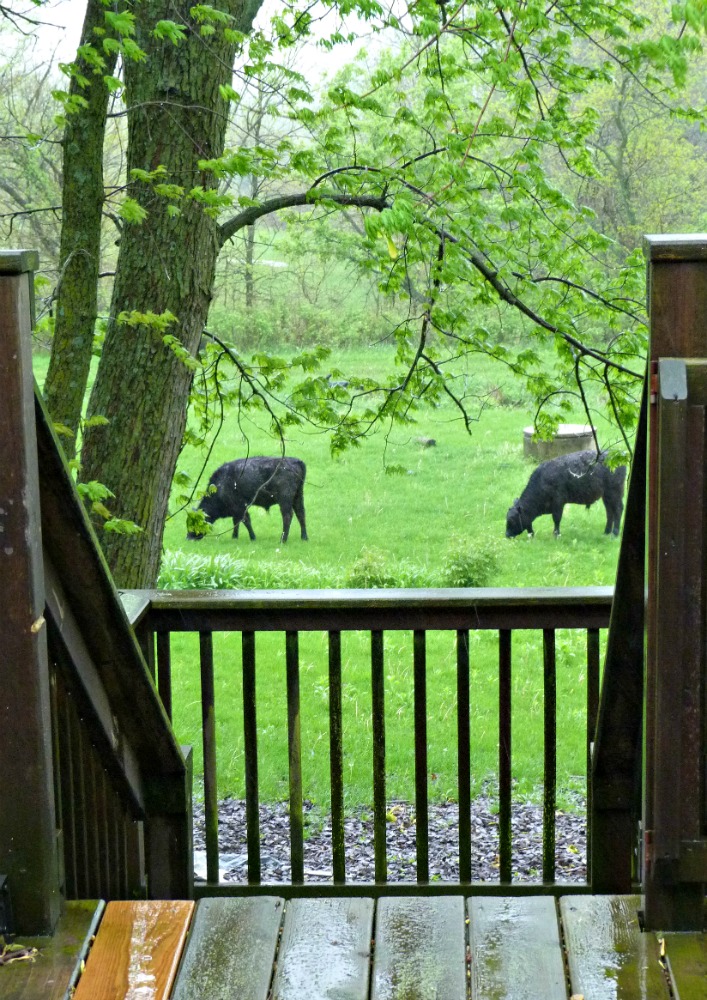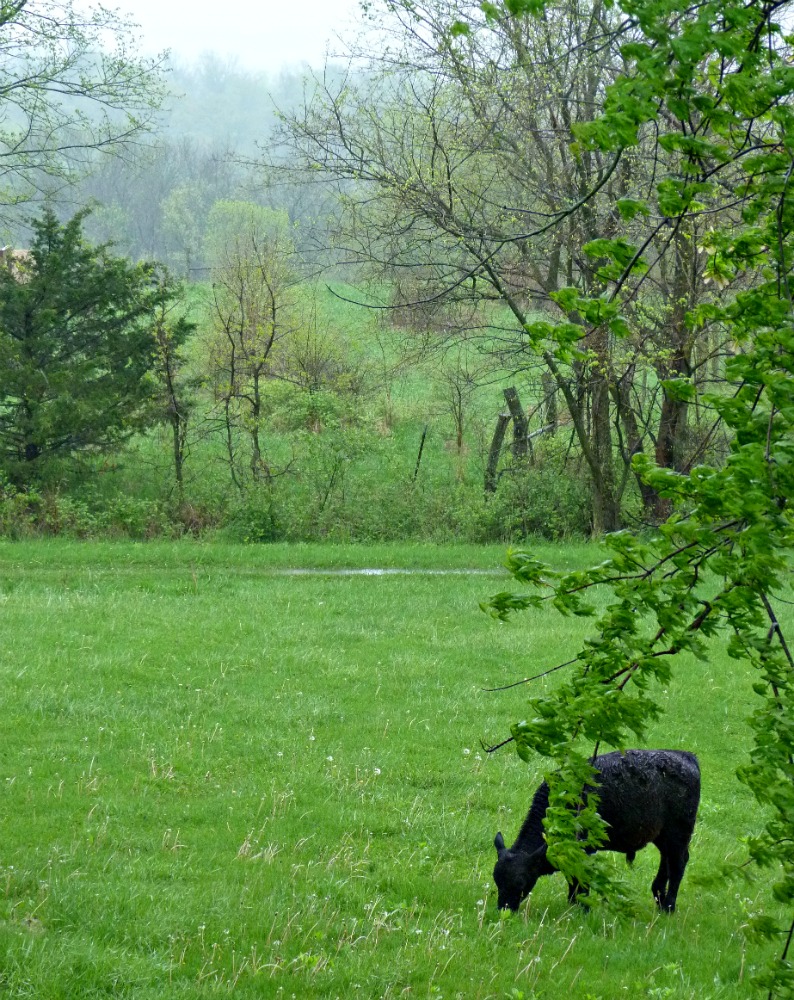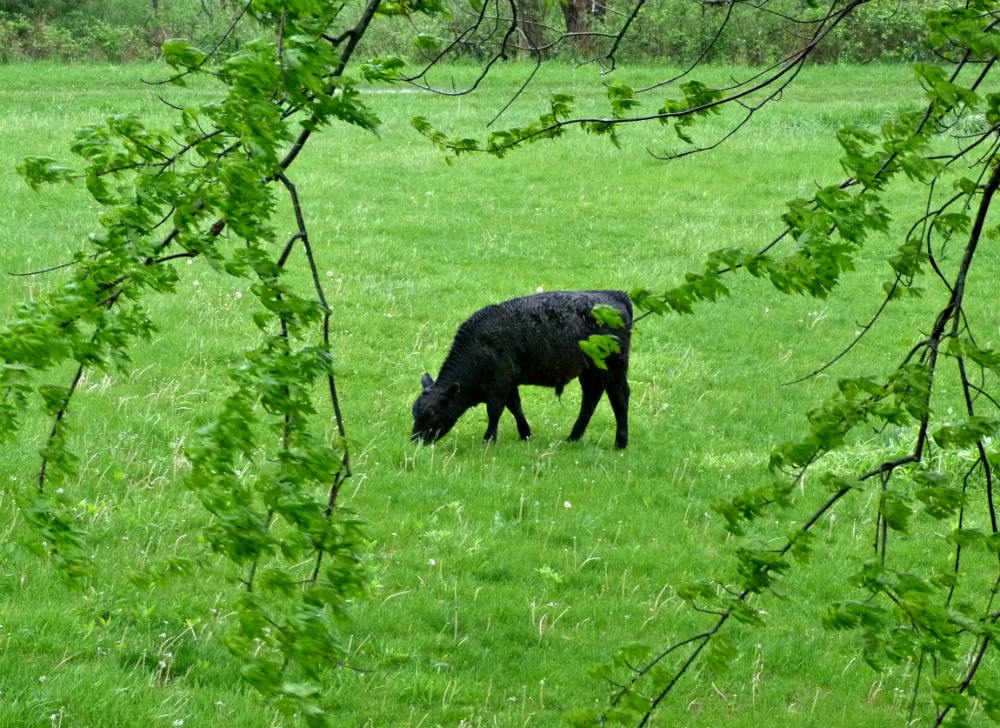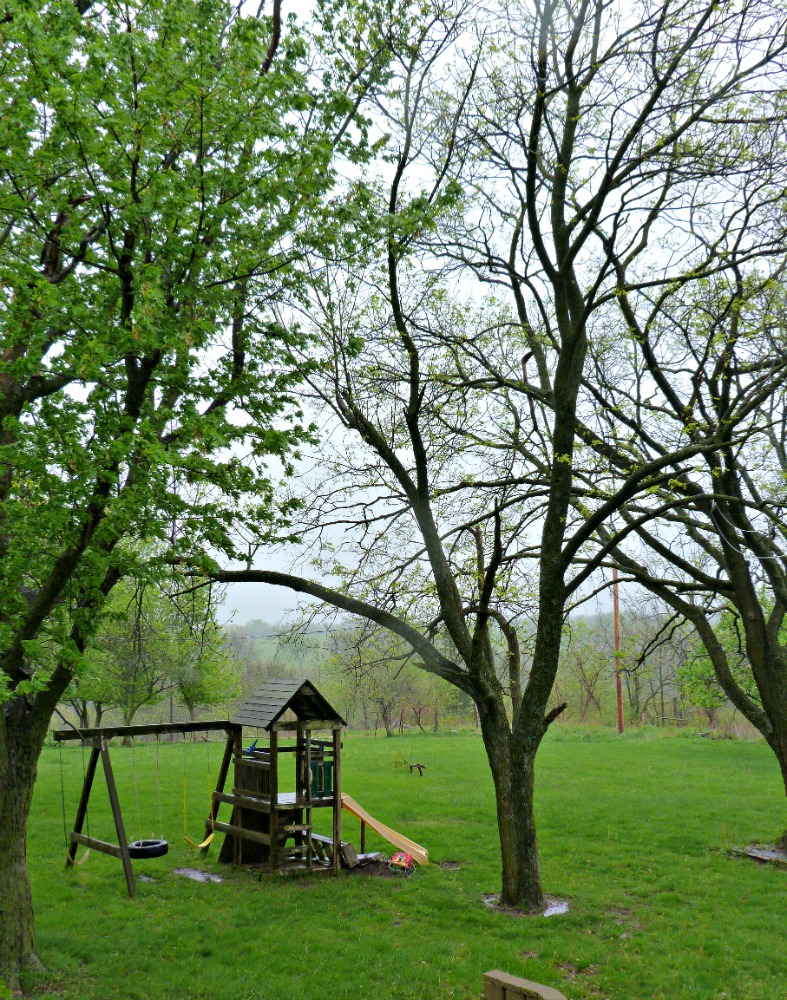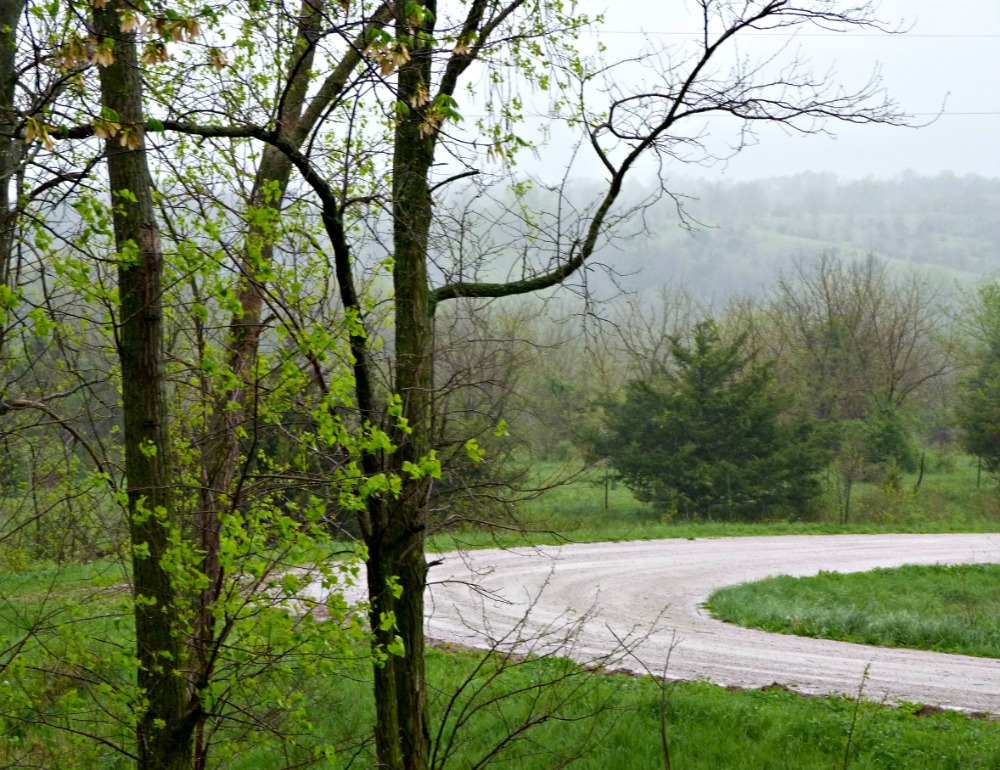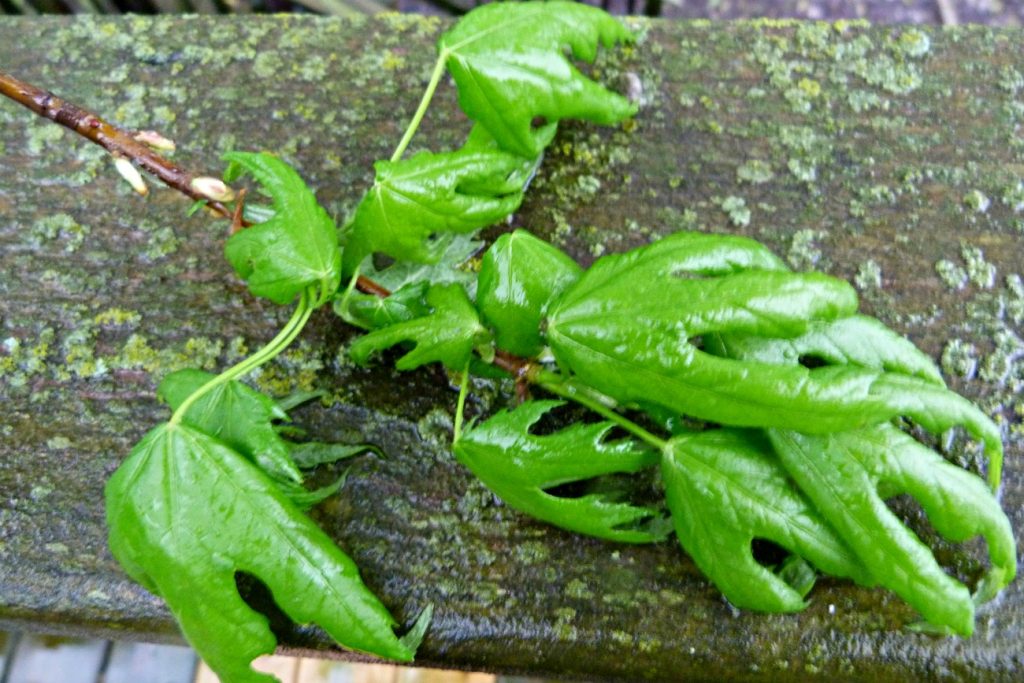Life has been too busy of late for me to blog. Worse, I’m afraid I let my busyness keep me from even reading, until today, this post that Mom prepared a month ago.
A month is a long time when your father is battling cancer. It is also a long time when your mother’s neglected post is about the questions she is asking in the shadow of death.
Mom’s post is now slightly dated. Dad has already begun chemotherapy. Thankfully, he has not had any unexpected reactions to any of his treatments. But we expect he will be tired and weak for the next six months, and the possibility of too-soon death remains very real. The heartbeat of Mom’s post is not dated at all.
I will let Mom take over from here, except to ask you to please pray for my parents (and Mom’s friend mentioned below) as autumn, and perhaps winter, nears.
An autumn/winter poem in the middle of summer? Exactly. That is the question we ask of life right now…
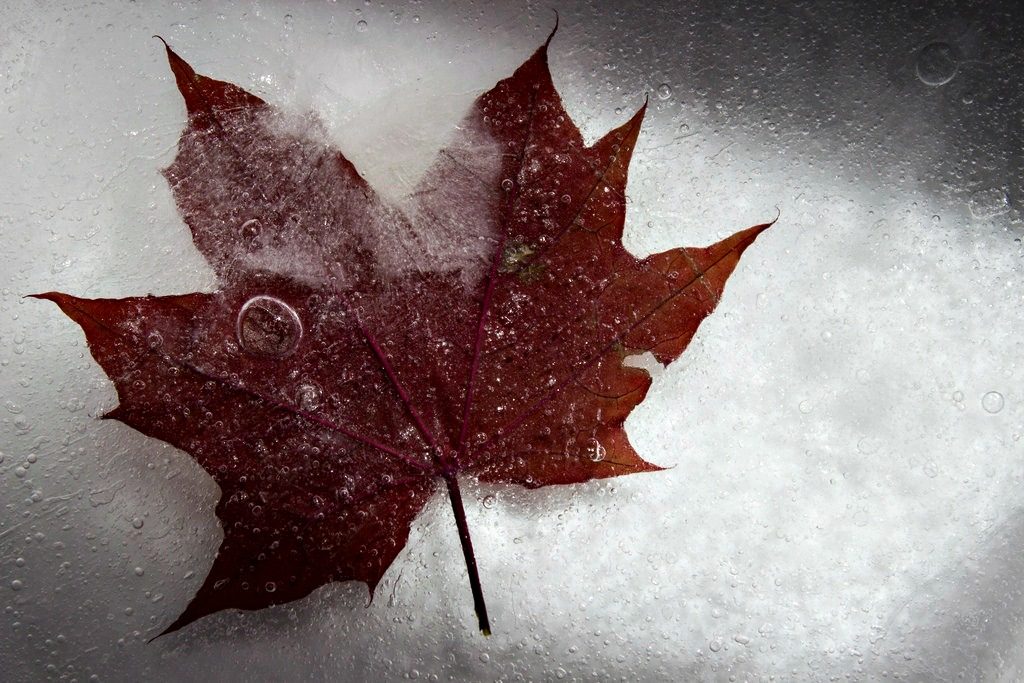
When Autumn Comes Too Soon
I have a dear friend in the bloom of life, serving God in the summer season of family and church and witness. But autumn has suddenly grabbed her by the ankles and abducted her away from the perfect life-cycle that ends with a gentle winter waiting for release. Her remaining allotted number of years are now counted out as weeks instead, and time has turned traitor on us all.
My husband was diagnosed with non-Hodgkin’s lymphoma a little over four years ago. Though a bit of a roller-coaster ride, the journey has not been too arduous up till now: three radiation sessions that were well-tolerated, and continued energy and good health otherwise. Now the lumps are multiplying and growing, some threatening to obstruct his airways, and so the oncologists are advising chemotherapy. That was the bad word we hoped to push off for many years and hopefully forever. Ken will be seventy in December and feels he has reached the biblically-allotted lifespan. But seventy in our day is not old, and Ken is a youngish seventy, still working hard much of the time. We are ready for autumn, perhaps, but winter?
I have been reading Psalm 90 the past months. I call it the Angry Psalm. Is God really so angry with us as the psalmist says? I have always loved this psalm, the security of having a timeless, eternal God as our dwelling place, the unfailing love that satisfies us every morning, and yes, the poetry of the piteous, poignant images about our numbered days, our little tale acted out during our directed time on earth.
Moses is credited with writing this Psalm: “A prayer of Moses the man of God.” That made me a little angry. Moses says we are consumed by God’s anger, and troubled by His wrath. But what does he know of threescore years and ten, living as he did to one hundred and twenty, and climbing his last mountain to meet God with mind alert, limbs still rippling with powerful muscles, and eyes as clear-sighted as a hawk’s? What does he know of wits stolen while the heart still beats strong, of eyes once love-filled glazing in confusion, of aging bodies lingering endlessly in uselessness and pain, or of believers in the prime of life struck down by rampaging warring cells in their beautiful bodies?
Then I calm myself down and acknowledge all the death and suffering and pouring out of judgement that Moses witnessed during the wilderness wanderings. He knew painfully well the “labour and sorrow” that can attend the longest lifespan. There is deep pathos and empathy in this psalm, and it is a prayer, so Moses dares to be as honest as we only dare be when we are speaking to God, pouring out our hearts before Him, when we are not presuming to speak for Him to others.
“How long?” Moses asks, and humanity has been asking this, the most frequently recorded question in the Bible, since time began. We ask it when time drags too long in the agony of an endless minute of unbearable pain. Our days too can be as a thousand years. We ask it when time flies away in a heartbeat, stealing our joyful hours when they have barely begun. How long will I have to treasure this moment? And we ask it when we bow before God and ache with the puzzle of life and time, and of God’s will in His measuring and meting out of time and what it brings. Why must life be so short and our troubles so long? So often our hopes spring up new and fresh in the morning, and by evening are withered and dry.
“So teach us to number our days.” Like Abraham I bombard God with numbers in my prayers. “If 1000 years are with you as one day, would it be such a hardship to give my friend fifty more? Thirty? Twenty? Please just ten?!” Can God understand how much we can long for time—more time—to watch time unfold with our loved ones, our children? But then, do I understand how unworthy I am of even one breath of life, one moment of time?

Oh Ageless, Ancient One, You hold us in Your hands. How calmly You carry us. How angrily You consume us, mind and body, sweat and sin, turning us back to dust again. And oh, how quickly You awaken from somewhere in the back of our little wave-battered craft, to speak your transforming “Peace, be still!” into our anxiety of waiting and despair. In the twinkling of an eye, behold you come quickly.
I remember how Your Son counted out time in unbearable blistering seconds on the cross, measuring pain in the torturous traverse of the sun’s shadow on the dial, in its creeping rays across the turning earth, and in the trickle of blood and sweat down His disfigured face. He too finished his years like a tale told, a sigh, a moan. But He also finished it with a cry of victory! He had accomplished what You had assigned Him to do in His time on earth. I praise You that because of His finished work, we too can live lives that accomplish Your plan for us, whether our lifespan be long or short. Because Your Son provided forgiveness for our sin, we can be saved from wrath and live under Your favour. We can manifest Your beauty in our lives, Your glory to our children. We can safely abide in the eternal.
*******************************************
The following poems were written many years ago. The first one, Help Us To Not Be Afraid Of Your Will, was written in 1979 after my mother went for a biopsy of a breast lump, which thankfully turned out to be benign. The poem was written on my knees, a prayer for my mother, which I shared with her before she went to the doctor for the results. The poem meant a lot to her and so holds some nostalgia for me, despite its simplicity and lack of imagery.
In 2000–2001 I wrote a new version which I feel is better poetry: Winter Birch. However my husband says he prefers the original, that it is easier to follow. There is something about the repeated refrain, “Help us to not be afraid of Your will” that echoes the cry of the struggling soul. The most repeated command in scripture is “Fear not,” “Be not afraid.” How can we face an unexpected autumn, the chill of winter? God invites us to turn from fear to faith, from doubt to praise, and meets us with unexpected gifts in His hands. As we wait for Ken’s chemotherapy consultation we are asking God for grace to do that, and to move beyond fear and questioning to faith and hope.
—Elaine Gingrich, July 12, 2016
Dwight again: I want to underscore a pair of observations Mom shared. What is “the most frequently recorded question in the Bible”? And what is “the most repeated command in scripture”? Did you catch them? Here they are again, a painful, promising, perfectly-matched pair: “How long?” and “Fear not!”
Now on to Mom’s poems.
HELP US TO NOT BE AFRAID
When we must lay down the work in our hand
And all our projects and prospects stand still,
When our life’s pattern is not as we planned,
Help us to not be afraid of Your will.
When we stand waiting in doubt’s desert land,
Wondering if yet our life’s dreams we’ll fulfil,
When we pray, lifting our heart in our hand,
Help us to not be afraid of Your will.
When all the questions within us demand
That we find answers our deep needs to fill,
And there are reasons we don’t understand,
Help us to not be afraid of Your will.
When all alone and all trembling we stand,
Help us to feel what Your love is, until
Finally we see the good gifts in Your Hand.
Then we will not be afraid of Your will.
—Elaine Gingrich, November 1979
UPDATE: A friend of Mom named Kelsie Troyer put this poem to music and recorded herself singing it. Her musical setting is unpretentious and sincere, fitting for a prayer. Feel free to sing along:
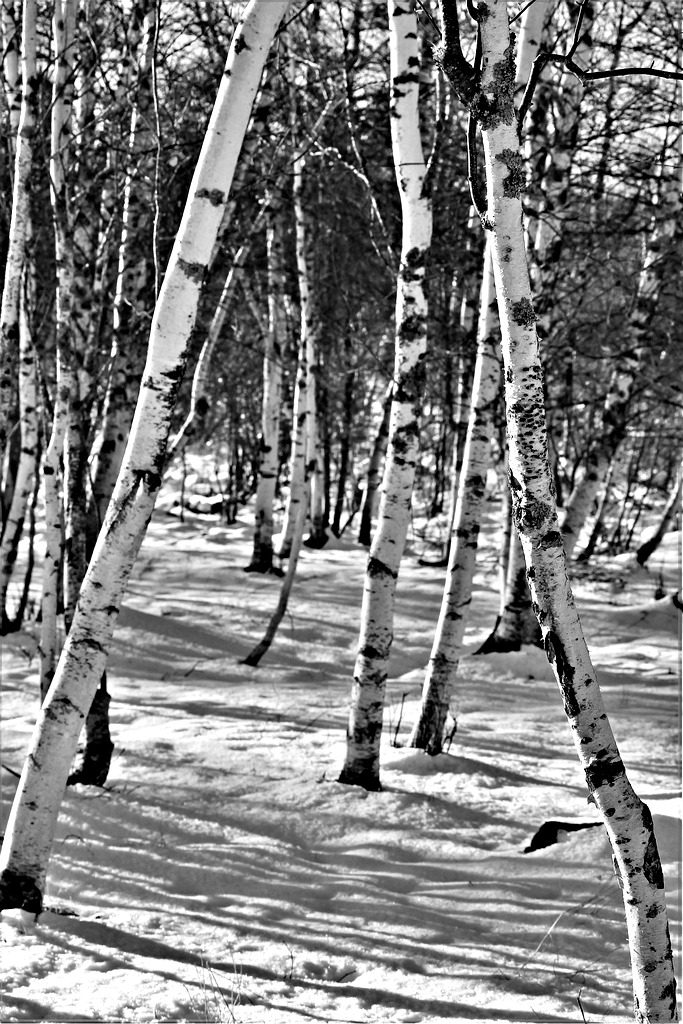
WINTER BIRCH
Oh God, these winter birch that lift their limbs
Empty of obvious purpose to the skies,
Have known the autumn chill, yet raise their hymns
Of pearly praise to You. They ask no whys.
Their leaves fell too. They know of letting go.
They trembled in the blast of death’s alarms,
But do not seem afraid through wind and snow.
They wait for spring. And still they raise their arms.
And should the changing seasons strip us too
And leave us purposeless, yet, when we pray
Lifting our hearts in trembling hands to you,
We would not fear your will nor doubt your way.
Help us to praise, though scattered on the ground
Beneath us lie dear dreams and withered plans,
That like these birch that quietly astound,
We look up fearless with faith-lifted hands.
—Elaine Gingrich, June 1, 2000/January 2001
For the rest of the poems in this monthly series, see here.
And if you enjoyed these poems, or want to show your support for Mom and Dad in this difficult season, leave a comment here for Mom, or send her an email at ![]() . Thanks!
. Thanks!


